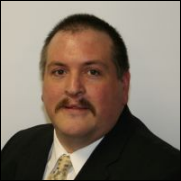Re: Walmart Health: Just had a great dental visit this morning, which was preceded by helpful reminders from Epic, and…
News 2/15/11
University Hospitals (OH) will deploy Allscripts EHR to all its 1,400 employed physicians and provide an exclusive endorsement of Allscripts EHR for its independent affiliated physicians. University Hospitals will also expand its deployment of the Sunrise Enterprise suite to its new Ahuja Medical Center.
E-prescribing company Dr.First acquires AdherenceRx, a provider of behavioral health coaching and medication adherence solutions. AdherenceRx CEO Chris Cresswell will lead Dr.First’s new Patient Innovation division.
Riverside Healthcare (IL) will migrate its employed physicians to eClinicalWorks using a SaaS model. Providers will have access to eCW’s EHR and PM, as well as Electronic Health eXchange, Enterprise Business Optimizer, Patient Portal, eClinicalMobile, and eClinicalMessenger.
EDI provider Encoda promotes company co-founder William Cox to president and CEO. Former president Robert Lee will remain as an advisor and major shareholder.
ChartLogic introduces a new voice recognition clinical documentation module called Stella, which I am sure would please Stanley Kowalski. Stella works with ChartLogic EHR or can be purchased as a separate module to work with other EHR systems. ChartLogic also just added the nine-physician Advanced Orthopaedics & Sports Medicine (TX) as a client.
Beth Israel Deaconess Physician Organization plans to implement the Ingenix Impact Suite to provide data analytics and reporting capabilities for its 1,800 physician network members. The tools will help doctors measure clinical performance to reduce variations in care and provide insight on underlying health trends.
A Massachusetts state representative proposes legislation that would require providers to use EMRs. I can’t imagine such legislation would pass. Then again, Massachusetts has been ahead of the rest of the nation enacting other healthcare legislation, so who knows.
Telehealth technology can significantly reduce costs associated with pediatric care, according to a DoD stody. Findings from the DoD’s Pacific Asynchronous Telehealth program indicate that 60% of the time physicians are able to resolved primary problems through a telehealth consult. Telehealth consults also kept patients from transferring to larger facilities 43% of the time.
The Retina Care Center (MD) picks SRS EHR for its four physician, five location practice.
Catholic Health Partners implements Phytel’s Proactive Patient Outreach to help its physicians improve prevention and chronic care management. The program creates an electronic registry of patients requiring preventative and chronic care based on data from CHP’s Epic EMR and PM systems, as well as national evidence-based protocols.
One less bit of paperwork for physicians: CMS will rescind a rule requiring a physician’s signature on all medical lab requisitions for Medicare patients. Opponents of the rule, which was to go into effect April 1st, argued that proliferation of EMRs in coming years has the “potential to transform the process and documentation of orders and requisitions, offering CMS access to standardized documentation of the physician’s orders.” In a letter to CMS from 89 Congressman also noted that currently challenges exist in the electronic ordering of lab tests, especially since some physician systems don’t interface with lab computer systems.
From Kareo’s latest newsletter: Maximizing the Value of Your Billing Office and Medical Billing Software, How to Hire – and Keep – the Best Biller, and, Understanding the RVU in Practice Management.
Dr. Manoj Jain, a Memphis infectious disease specialist, writes a compelling article about hospitals taking over private practices. He notes that healthcare is becoming increasing complex as providers try to keep up with constantly changing regulations and implement EMRs. But a more significant reason for practices to join hospitals hospitals: hospitals are much paid more than practices for such things as MRIs and EKGs. Hospitals don’t necessarily want to manage independent-minded physicians any more than physicians want administrative oversight, but hospitals and physicians are aligning nonetheless. His conclusion: “One of the best ways to change health care is to change the way one pays for health care.”




